This article was medically reviewed by Raj Vuppalanchi, MD. Dr. Raj Vuppalanchi is an Academic Hepatologist, a Professor of Medicine at Indiana University School of Medicine, and the Director of Clinical Hepatology at IU Health. With over ten years of experience, Dr. Vuppalanchi runs a clinical practice and provides care to patients with various liver disorders at the University Hospital in Indianapolis. He completed dual fellowships in Clinical Pharmacology and Gastroenterology-Hepatology at Indiana University School of Medicine. Dr. Raj Vuppalanchi is board certified in Internal Medicine and Gastroenterology by the American Board of Internal Medicine and is a member of the American Association for Study of Liver Diseases and the American College of Gastroenterology. His patient-oriented research is dedicated to finding new treatments for various liver disorders as well as the use of diagnostic tests for non-invasive estimation of liver fibrosis (transient elastography) and portal hypertension (spleen stiffness).
There are 21 references cited in this article, which can be found at the bottom of the page.
wikiHow marks an article as reader-approved once it receives enough positive feedback. In this case, several readers have written to tell us that this article was helpful to them, earning it our reader-approved status.
This article has been viewed 78,121 times.
The liver is the largest organ inside the human body, and one of the most important. Not only is it responsible for filtering all sorts of harmful toxins out of your blood, it also helps you digest your food and store energy.[1] Your liver is also one of the easiest organs to damage, and does require a little TLC to keep it working properly. This guide will give you advice on maintaining optimal liver health by living a healthy, liver-friendly lifestyle, and avoiding exposure to the kinds of harmful substances that can damage your liver. It will also teach you to recognize some of the common signs of liver distress in yourself or others.
Steps
Maintaining a Healthy Lifestyle
-
1Eat a healthy diet. One of the best ways to keep your liver healthy is to eat a balanced diet that is low in trans fats and fructose (as in "high fructose corn syrup").[2] These substances are found in many processed foods, including chips, soda, fried foods, etc., and have both been shown to contribute negatively to liver function.
- Processed foods also include a host of other chemicals to maintain freshness and appearance, which your liver has to work to filter out.
- Your best bet for maintaining liver (and overall!) health is to minimize your consumption of prepackaged and processed foods, and prepare food from scratch using fresh ingredients whenever possible.
-
2Consider choosing organic foods to limit your exposure to pesticides and other chemicals. Organic food is produced using minimal pesticides in the case of produce, and minimal or no added hormones or antibiotics, in the case of animal products.[3] This translates to less chemicals and additives that your liver has to filter out.
- It is important to note that organic foods still may contain some residual pesticides, and the jury is still out on how much of a health benefit they provide. However, if you can afford to go organic, it certainly won't harm your liver, and you will be helping the environment, as well.[4]
Advertisement -
3
-
4Exercise regularly. Regular exercise not only helps you maintain a healthy body weight, it does good things for your liver, as well. Studies have shown that just 150 minutes of activity per week (that’s just 1/2 an hour, five days per week) is enough to improve liver enzyme levels, and overall liver function. It can also reduce your chances of developing fatty liver disease.[7]
-
5Quit smoking. As if you didn't have enough reasons to quit already: numerous studies have shown that smoking drastically increases the risks of contracting both cirrhosis (scarring) of the liver, and liver cancer.[8]
-
6Protect yourself from hepatitis. Hepatitis is an inflammation of the liver that is usually caused by a virus. There are three main types of hepatitis: A, B, and C, and all are contagious, however hepatitis C is usually only spread by sharing intravenous needles. Vaccines are available for hepatitis A and B.[9]
- Practice good hygiene: remember to wash your hands after using the restroom or changing a baby's diaper.
- Hepatitis B is commonly spread through unprotected sex, so always wear a condom.
- Do not share drug needles with another person, or come in contact with another person's blood.
- Get vaccinated for hepatitis A and B.
Avoiding Harmful Substances
-
1Moderate your alcohol consumption. When your liver processes alcohol, a number of toxic chemicals are released that can cause damage to your liver.[10] Alcoholic liver disease is the result of the overconsumption of alcohol, and is responsible for up to 37% of all liver disease deaths. People who are especially at risk for developing alcoholic liver disease are those who are dependent on alcohol, females, people who are overweight, and people with a familial tendency to develop the condition. The routine consumption of alcohol can also lead to a condition called fatty liver disease. However, the good news is that the liver is able to regenerate itself better than any other organ in the body, and alcohol-induced liver problems can often be stopped, or even reversed! [11] [12]
- If you have been drinking a lot, take a break from alcohol altogether. Your liver needs 2 weeks alcohol-free to begin the healing process.
- After this, try not to regularly exceed 3-4 units of alcohol per day (1.5 pints of beer) if you are a man, and 2-3 units per day (1 pint of beer) if you are a woman.[13]
-
2Be careful when using acetaminophen (Tylenol). Most people consider the over-the-counter pain reliever acetaminophen to be a safe, almost benign drug. However, acetaminophen overdose is a common cause of liver damage, and is responsible for the deaths of as many as 1000 people every year in the United States alone, most of which are accidental.[14] Remember that acetaminophen is a drug, and use it only as directed!
- Even a single overdose of acetaminophen can be enough to cause catastrophic liver failure.
- Always consult with a pediatrician or pharmacist before administering acetaminophen to a child to make certain you have the correct dosage.
- Avoid alcohol when taking acetaminophen, and check with a doctor before mixing acetaminophen with other medications.
- Be extremely cautious when administering acetaminophen to children. Changes in labeling and dosage concentrations can be especially confusing. When in doubt, call your pediatrician or local pharmacist for precise dosing instructions.[15]
- Be on the lookout for hidden acetaminophen. Many medications contain acetaminophen that do not bear the name "Tylenol." Multi-formula cold remedies, such as Nyquil, Alka Seltzer Plus, and even children's medicines like Triaminic Cough & Sore Throat all contain acetaminophen. Read labels carefully, and be sure not to double-up on medications containing the same active ingredient.[16]
-
3Use caution when taking prescription medications. All medications put some strain on the liver, as it must work overtime to metabolize the medication and filter out any excess toxins. However, some medications can put an undue strain on the liver, and cause damage, especially when mixed with other substances. Medications that have the potential to cause liver damage include statins (cholesterol medications), Amiodarone, and even certain antibiotics, like the commonly prescribed Augmentin.
- Always take these and other medications as directed, and ask your doctor or pharmacist before mixing prescription medications with any over-the-counter medications, vitamins, supplements, or alcohol.[17]
- Not all antibiotics carry the risk of liver damage, but it's still best to avoid alcohol while taking them so that your body can heal quickly. [18]
-
4Avoid exposure to other toxins. Exposure to pesticides, heavy metals, and even environmental toxins found in polluted air and water can increase your risk of developing liver disease. Avoid any unnecessary exposure to these kinds of toxins, and use appropriate safety gear if you cannot.[19]
- Use natural cleaning products in your home whenever possible to reduce your exposure to chemicals.
- Consider using water and air filters in your home to reduce exposure to environmental toxins.
Recognizing the Signs of Liver Distress
-
1Learn to recognize the symptoms of liver disease. Because the liver does its work quietly, many people fail to recognize that they are experiencing liver damage or disease until it has gotten quite severe. The following are some of the symptoms of liver disease, which often emerge gradually over time. If you experience some or all of these symptoms, especially jaundice, see a doctor and explain your concerns right away:[20]
- Loss of appetite.
- Nausea and vomiting.
- Diarrhea.
- Dark-colored urine and pale bowel movements.
- Pain in the right upper quadrant of your stomach.
- Jaundice: the yellowing of the skin and/or whites of the eyes.[21]
-
2Learn to recognize the symptoms of acute liver failure. Acute liver failure can occur very rapidly in an otherwise healthy person, and is often not recognized until significant damage has taken place. If you or someone you know suddenly develops some or all the following symptoms, particularly jaundice (yellowing of the skin or whites of the eyes), unusual tiredness, or unexplained disorientation or fatigue, seek medical care immediately.[22] The symptoms of acute liver failure include:
- Jaundice: the yellowing of the skin and/or whites of the eyes
- Pain in the upper right abdomen.
- Abdominal swelling.
- Nausea.
- Vomiting.
- Malaise: a general feeling of un-wellness.
- Disorientation or confusion.
- Unusual sleepiness.
-
3Request a Liver Function Test. Due to the gradual and quiet nature of liver symptoms, you might need to be proactive about checking your liver health. If you have reason to suspect that your liver has sustained damage due to alcohol abuse, medication overuse, possible exposure to viral hepatitis, a family history of liver disease, etc., schedule an appointment with your doctor and request a routine liver function test (LFT). It is a simple blood test that could save your life![23]
Expert Q&A
Did you know you can get expert answers for this article?
Unlock expert answers by supporting wikiHow
-
QuestionWhat foods are good for my liver?
 Raj Vuppalanchi, MDDr. Raj Vuppalanchi is an Academic Hepatologist, a Professor of Medicine at Indiana University School of Medicine, and the Director of Clinical Hepatology at IU Health. With over ten years of experience, Dr. Vuppalanchi runs a clinical practice and provides care to patients with various liver disorders at the University Hospital in Indianapolis. He completed dual fellowships in Clinical Pharmacology and Gastroenterology-Hepatology at Indiana University School of Medicine. Dr. Raj Vuppalanchi is board certified in Internal Medicine and Gastroenterology by the American Board of Internal Medicine and is a member of the American Association for Study of Liver Diseases and the American College of Gastroenterology. His patient-oriented research is dedicated to finding new treatments for various liver disorders as well as the use of diagnostic tests for non-invasive estimation of liver fibrosis (transient elastography) and portal hypertension (spleen stiffness).
Raj Vuppalanchi, MDDr. Raj Vuppalanchi is an Academic Hepatologist, a Professor of Medicine at Indiana University School of Medicine, and the Director of Clinical Hepatology at IU Health. With over ten years of experience, Dr. Vuppalanchi runs a clinical practice and provides care to patients with various liver disorders at the University Hospital in Indianapolis. He completed dual fellowships in Clinical Pharmacology and Gastroenterology-Hepatology at Indiana University School of Medicine. Dr. Raj Vuppalanchi is board certified in Internal Medicine and Gastroenterology by the American Board of Internal Medicine and is a member of the American Association for Study of Liver Diseases and the American College of Gastroenterology. His patient-oriented research is dedicated to finding new treatments for various liver disorders as well as the use of diagnostic tests for non-invasive estimation of liver fibrosis (transient elastography) and portal hypertension (spleen stiffness).
Academic Hepatologist
-
QuestionI had abnormal liver enzyme level, due to an over night job, and after a period of rest, I got recovery. So, can I eat some protein supplements to help make my liver strong?
 Luba Lee, FNP-BC, MSLuba Lee, FNP-BC is a Board-Certified Family Nurse Practitioner (FNP) and educator in Tennessee with over a decade of clinical experience. Luba has certifications in Pediatric Advanced Life Support (PALS), Emergency Medicine, Advanced Cardiac Life Support (ACLS), Team Building, and Critical Care Nursing. She received her Master of Science in Nursing (MSN) from the University of Tennessee in 2006.
Luba Lee, FNP-BC, MSLuba Lee, FNP-BC is a Board-Certified Family Nurse Practitioner (FNP) and educator in Tennessee with over a decade of clinical experience. Luba has certifications in Pediatric Advanced Life Support (PALS), Emergency Medicine, Advanced Cardiac Life Support (ACLS), Team Building, and Critical Care Nursing. She received her Master of Science in Nursing (MSN) from the University of Tennessee in 2006.
Board-Certified Family Nurse Practitioner Overnight job is unlikely to cause abnormal liver enzymes level unless you had to drink heavily, were inactive and gained weight. Eating a well balanced diet, abstaining from alcohol, maintaining healthy weight and limiting Tylenol use will be the best way to help your liver. Protein supplements might be helpful as a part of a healthy lifestyle.
Overnight job is unlikely to cause abnormal liver enzymes level unless you had to drink heavily, were inactive and gained weight. Eating a well balanced diet, abstaining from alcohol, maintaining healthy weight and limiting Tylenol use will be the best way to help your liver. Protein supplements might be helpful as a part of a healthy lifestyle. -
QuestionWhich diet can I use to protect my liver?
 Luba Lee, FNP-BC, MSLuba Lee, FNP-BC is a Board-Certified Family Nurse Practitioner (FNP) and educator in Tennessee with over a decade of clinical experience. Luba has certifications in Pediatric Advanced Life Support (PALS), Emergency Medicine, Advanced Cardiac Life Support (ACLS), Team Building, and Critical Care Nursing. She received her Master of Science in Nursing (MSN) from the University of Tennessee in 2006.
Luba Lee, FNP-BC, MSLuba Lee, FNP-BC is a Board-Certified Family Nurse Practitioner (FNP) and educator in Tennessee with over a decade of clinical experience. Luba has certifications in Pediatric Advanced Life Support (PALS), Emergency Medicine, Advanced Cardiac Life Support (ACLS), Team Building, and Critical Care Nursing. She received her Master of Science in Nursing (MSN) from the University of Tennessee in 2006.
Board-Certified Family Nurse Practitioner
Warnings
- If you experience yellowing of the skin or whites of the eyes, seek medical attention immediately.⧼thumbs_response⧽
References
- ↑ https://www.hopkinsmedicine.org/health/conditions-and-diseases/liver-anatomy-and-functions
- ↑ Raj Vuppalanchi, MD. Academic Hepatologist. Expert Interview. 26 October 2020.
- ↑ http://www.soilassociation.org/whatisorganic
- ↑ http://www.slate.com/articles/double_x/the_kids/2014/01/organic_vs_conventional_produce_for_kids_you_don_t_need_to_fear_pesticides.html
- ↑ Raj Vuppalanchi, MD. Academic Hepatologist. Expert Interview. 26 October 2020.
- ↑ http://well.blogs.nytimes.com/2014/10/20/coffee-may-protect-the-liver/?_r=0
- ↑ https://www.ncbi.nlm.nih.gov/pmc/articles/PMC5954622/
- ↑ http://consumer.healthday.com/encyclopedia/hepatitis-c-23/hepatitis-news-373/what-can-i-do-to-stay-healthy-and-protect-my-liver-645174.html
- ↑ http://womenshealth.gov/publications/our-publications/fact-sheet/viral-hepatitis.html
- ↑ http://pubs.niaaa.nih.gov/publications/arh21-1/05.pdf
- ↑ https://www.drinkaware.co.uk/check-the-facts/health-effects-of-alcohol/effects-on-the-body/alcohol-and-your-liver
- ↑ https://www.hopkinsmedicine.org/health/conditions-and-diseases/liver-health
- ↑ https://www.drinkaware.co.uk/check-the-facts/what-is-alcohol/alcohol-unit-guidelines/
- ↑ http://www.propublica.org/article/tylenol-mcneil-fda-behind-the-numbers
- ↑ https://kidshealth.org/en/parents/acetaminophen.html
- ↑ http://www.knowyourdose.org/common-medications
- ↑ http://www.medicinenet.com/drug_induced_liver_disease/page9.htm
- ↑ https://www.medsafe.govt.nz/profs/PUArticles/AntibioticsSept2012.htm
- ↑ https://www.ncbi.nlm.nih.gov/pmc/articles/PMC8264448/
- ↑ http://www.nlm.nih.gov/medlineplus/hepatitis.html
- ↑ Raj Vuppalanchi, MD. Academic Hepatologist. Expert Interview. 26 October 2020.
- ↑ https://www.cedars-sinai.org/health-library/diseases-and-conditions/a/acute-liver-failure.html
- ↑ http://www.worker-health.org/liverkidneyscreen.html
About This Article
To protect your liver, eat a healthy diet that’s low in trans fats and fructose, which are found in chips, soda, and fried foods. Processed foods also contain a lot of chemicals that your liver has to filter out, so aim to eat as many fresh fruits and vegetables as you can. If possible, choose organic produce to limit your exposure to pesticides and other chemicals, which can tax your liver. You’ll also want to limit your alcohol consumption since drinking can lead to fatty liver disease. Acetaminophen can also lead to liver failure when not taken properly, so make sure to take this over the counter medication as directed. For more tips from our Medical co-author, including how to recognize the signs of liver distress, keep reading!


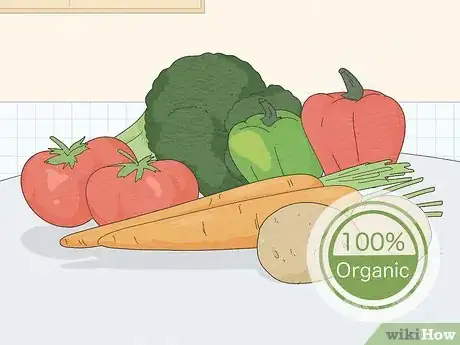
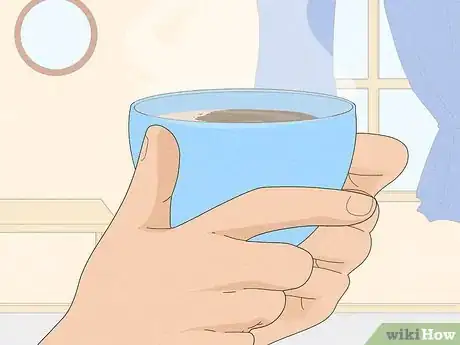
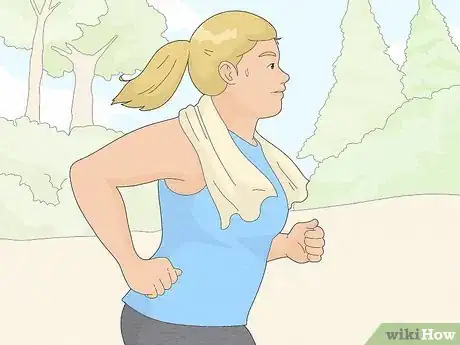
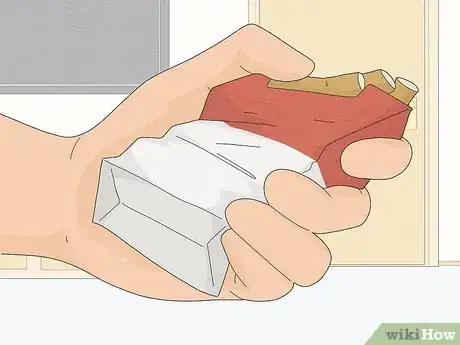
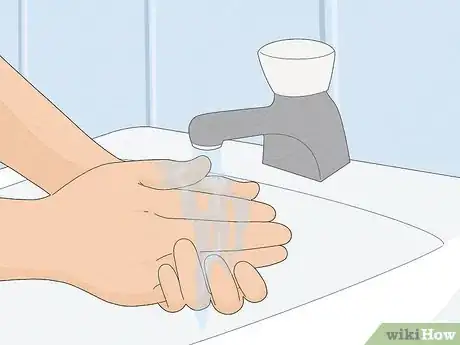
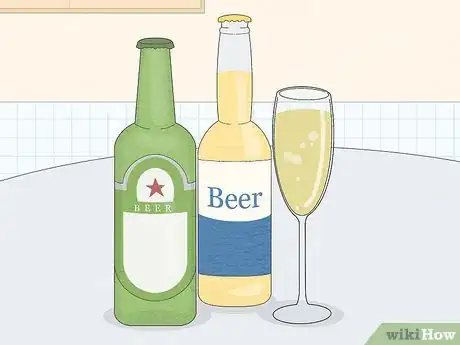
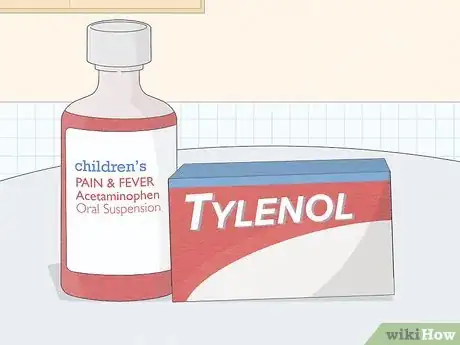
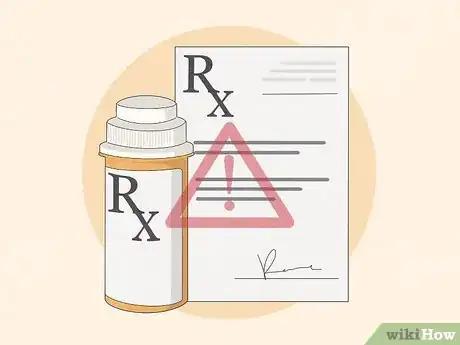
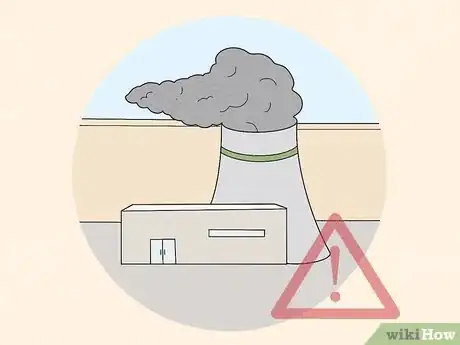

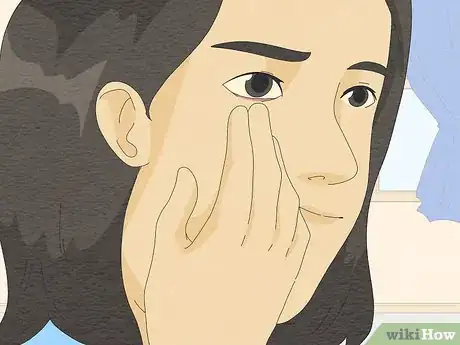
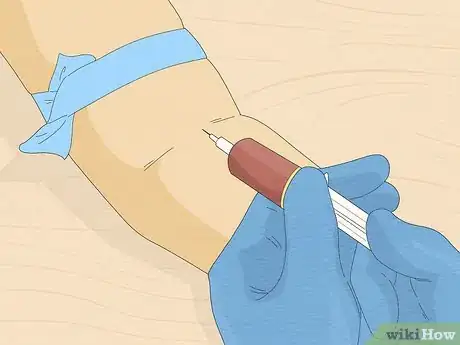

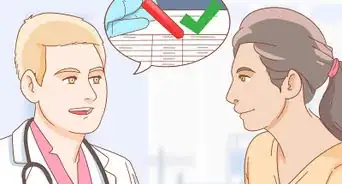
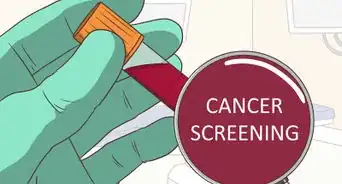

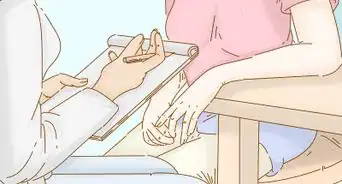

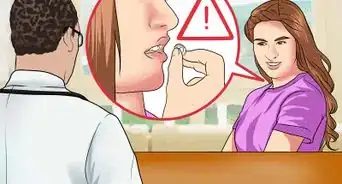

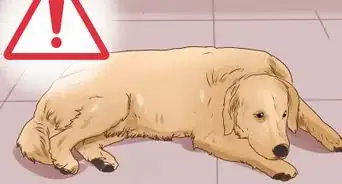

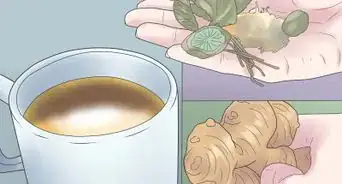

-Step-16.webp)











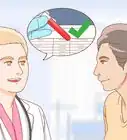
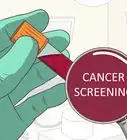





































Medical Disclaimer
The content of this article is not intended to be a substitute for professional medical advice, examination, diagnosis, or treatment. You should always contact your doctor or other qualified healthcare professional before starting, changing, or stopping any kind of health treatment.
Read More...